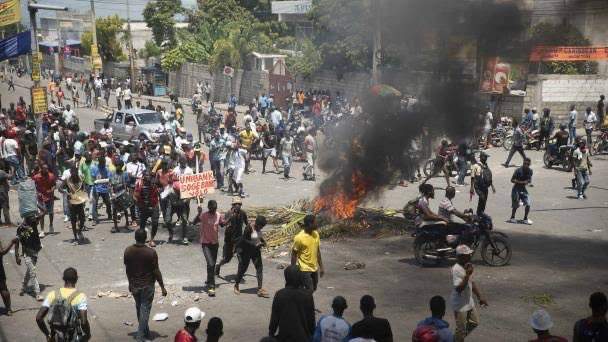Explore the gripping challenges facing Haiti, where gang violence, political unrest, and a humanitarian crisis converge.

The capital city of Haiti, Port-au-Prince, presents a deceivingly serene image from above, with white-washed homes dotting steep green hills around a glittering bay. However, navigating its cracked streets demands a careful assessment of risk due to the stranglehold ruthless gangs have on the city.
Also Read:- Remembering Chris Mortensen: NFL Reporter Extraordinaire
These criminal factions, controlling 80% of the capital according to UN estimates, have turned neighborhoods into warring fiefdoms, creating a daily reality of horror captured in torture videos circulated online for ransom.
Recent highly coordinated gang attacks in Port-au-Prince, including burning police stations and freeing prisoners, have prompted the government to declare a state of emergency. The escalating violence has left citizens at a breaking point, with frequent protests expressing frustration and blaming Prime Minister Ariel Henry for ceding ground to gangs over the past three years without organizing elections for a fresh start.
Haiti’s gangs, once perceived as tools for powerful figures, have evolved into independent “violent entrepreneurs,” controlling key areas and engaging in a lucrative kidnapping business that saw 2,490 people abducted last year. The country’s National Police, despite efforts, faces challenges with nearly 100 growing gangs in the metropolitan area, resulting in mass resignations.
As gang control extends beyond urban areas, hunger becomes a significant threat. Gangs controlling crucial roads impede the transport of essential goods, causing prices to skyrocket. Over 300,000 civilians have become homeless due to inter-gang warfare, exacerbating the humanitarian crisis.
Amidst this chaos, calls for Prime Minister Henry’s resignation intensify, with widespread anger expressed on the streets and even within the gangs themselves. The situation has attracted political opportunists, and a proposed new transition deadline for elections is set for August 31, 2025.
In a bid to address the crisis, Henry’s government has sought foreign military intervention, specifically a Kenyan-led mission approved by the United Nations Security Council. While greeted with skepticism, this intervention, promised with over 1,000 troops, is seen as a potential solution to challenge gang control and offer a glimmer of hope for change.
The success or failure of this mission holds significant consequences for Haiti‘s future, with mounting pressure suggesting a volatile tipping point.
